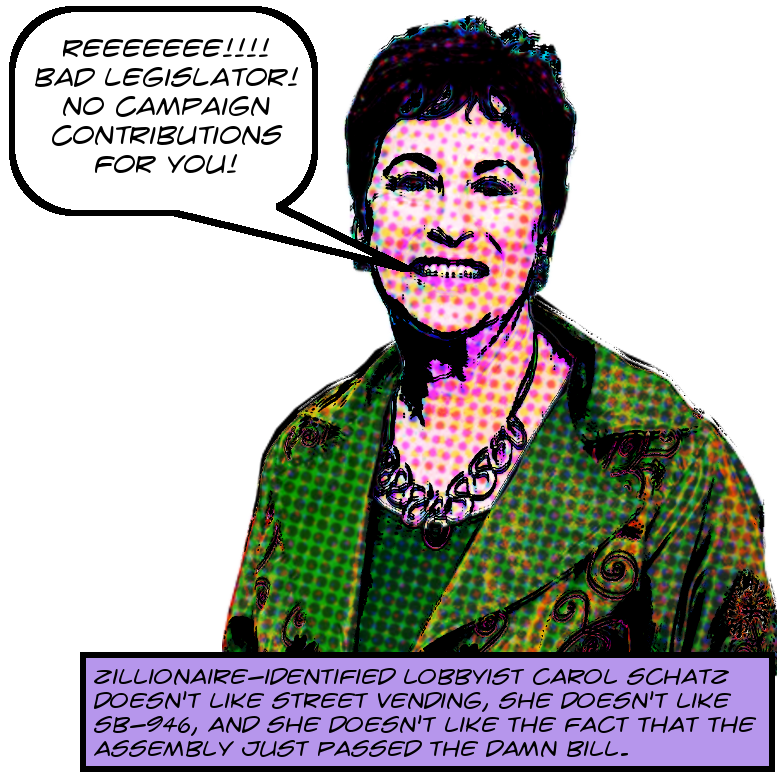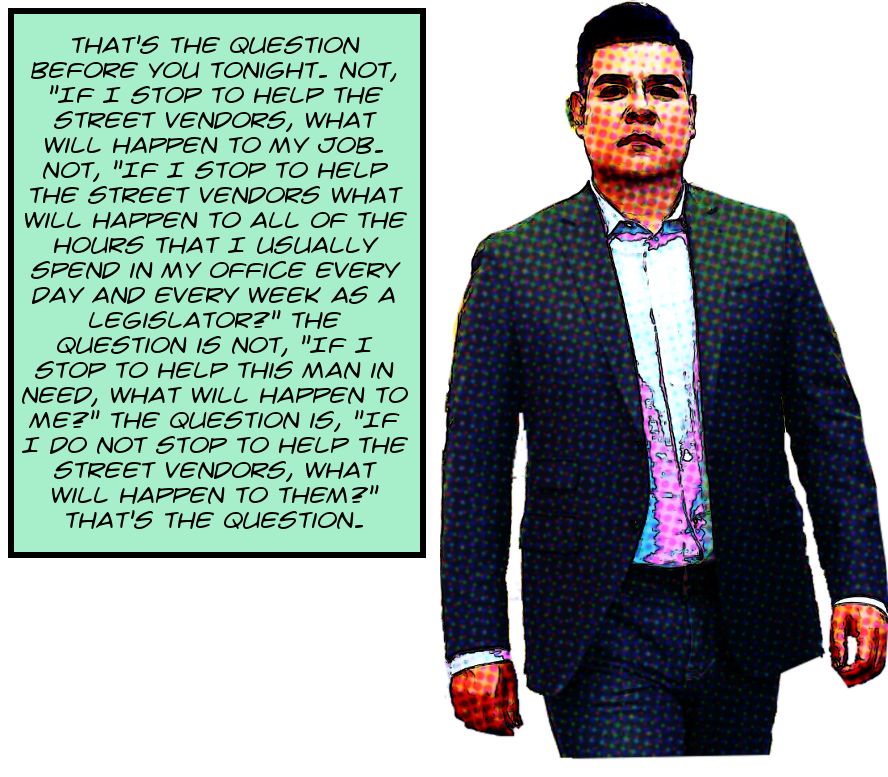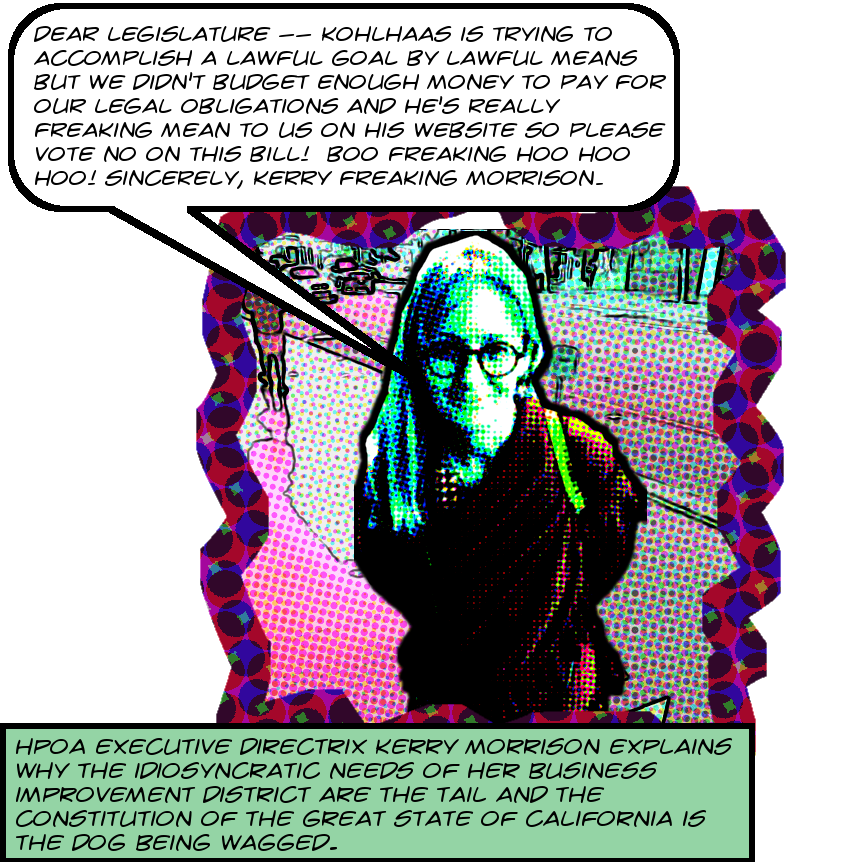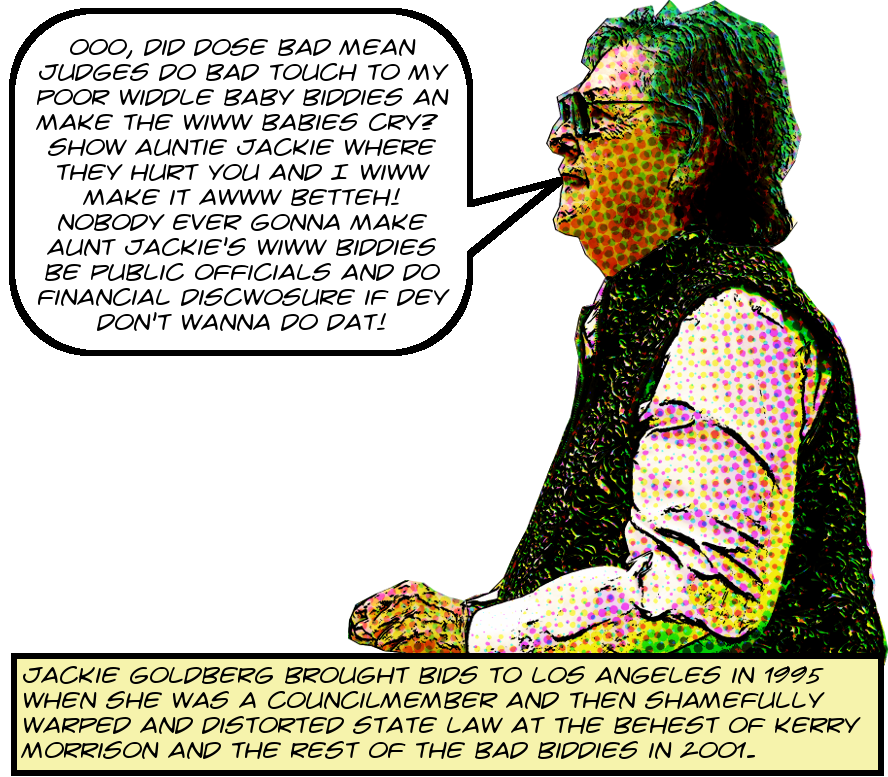 The only reason that this blog even exists is that business improvement districts in California are subject to the California Public Records Act. And the first part of the story of how this came to be is fairly well known. In 1998 Hollywood property owner Aaron Epstein wanted to attend meetings of the Hollywood Property Owners’ Alliance and Kerry Morrison, who then as now would willingly brook no interference in her proprietary demesne, told him to go pound sand.
The only reason that this blog even exists is that business improvement districts in California are subject to the California Public Records Act. And the first part of the story of how this came to be is fairly well known. In 1998 Hollywood property owner Aaron Epstein wanted to attend meetings of the Hollywood Property Owners’ Alliance and Kerry Morrison, who then as now would willingly brook no interference in her proprietary demesne, told him to go pound sand.
Instead of slapping the silica, though, Epstein filed suit against the BID, and the process culminated in the lovely holding, in Epstein v. Hollywood Entertainment District BID, that BIDs were subject to the Brown Act and the CPRA. This ushered anti-BID activists into a paradise from which we are unlikely to be expelled. Kerry Morrison didn’t take this outcome with any grace whatsoever and has been pissing and moaning about it from the outset all the way to the present day.
But that opinion isn’t the only authority that subjects BIDs to transparency laws. There is also the famous §36612 of the PBID Law of 1994, which states in no uncertain terms that BIDs are subject to both the Brown Act and the CPRA. It also states explicitly (and ominously) that BID board members and staff are not public officials. Obviously this section was added by the legislature after the Epstein ruling, but I never took the time to investigate the history.
Until now, that is. And what an obvious-after-the-fact surprise it was to find that the bill that added that section was written by none other than Jackie Goldberg, who as CD13 Councilmember during the formation of the Hollywood Entertainment District BID was known to have a great deal of blood on her hands already. But by March 2001, when Epstein was finally decided, Goldberg was in the Assembly, so naturally it was to her that the BIDdies, emotionally traumatized by the court’s decision, went running for comfort.
And in response to their pleas Goldberg introduced AB 1021 (2001) to coat the bitter pill of Epstein with some soothing syrup and to codify these changes in §36612 of the PBID law even while acknowledging that the legislature wasn’t going to be able to change the court’s holding And I recently obtained a copy of the bill analysis prepared at the time for the Assembly’s Committee on Local Government to help them understand what they were voting for. Therein are laid out not only the provisions of the new law, but the complaints of the BIDdies, so the connection is perfectly clear.
The main concessions to the BIDdie agenda found in the code section are the explicit statement that BIDs are private corporations and that neither BID boards nor staff can be considered public officials for any reason. This last bit is tied in to the BIDs’ fear that board members might be subject to California’s political reform act and to Government Code §1090 and therefore to various ethics restrictions and financial disclosure requirements, although it’s not really clear to me that the language has that effect. I’m no kind of expert, though.
Another sop to the BIDdies provided here by Goldberg was the authorization of 10 year renewals. Previously BIDs could only renew for up to five years. In any case, turn the page for more detail, more non-expert discussion and, as always, a transcription of the document.
Continue reading The Checkered History Of Streets And Highways Code §36612 — How The California Court Of Appeals Made BIDs Cry By Holding That They Were Subject To The Brown Act And The Public Records Act — And How Bad BIDmother Jackie Goldberg Soothed Their Hurt Feelings By Passing A Law Stating That They Weren’t Public Officials — Is It Constitutional? — It Hasn’t Been Adjudicated So Who Knows?! →
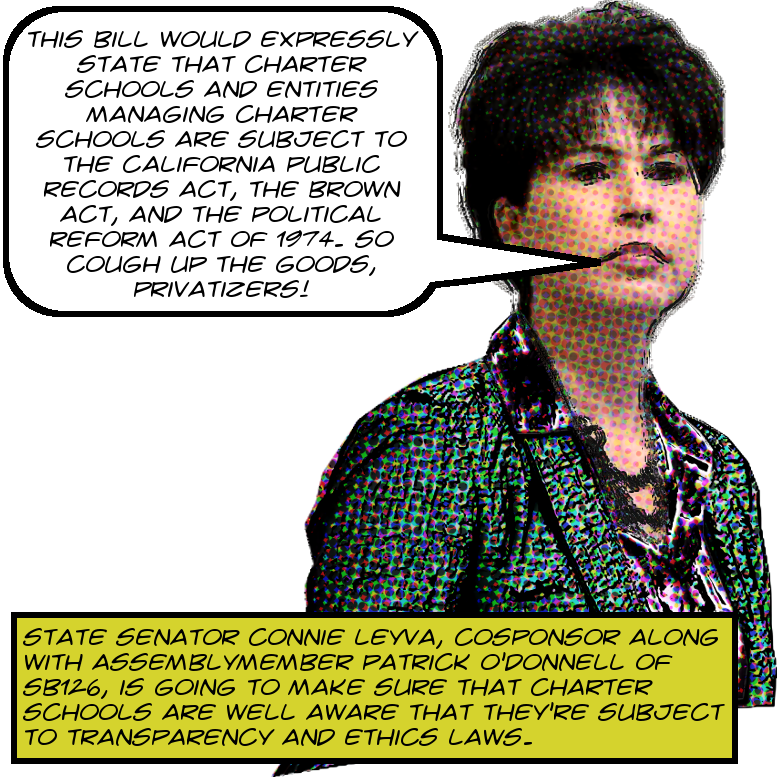 You may recall that California State Attorney General Xavier Becerra issued an opinion in December 2018 stating that charter schools in California were subject to the Brown Act and the Public Records Act. And recently, despite some ill-founded pushback, I was able to use the CPRA to get some pretty interesting information out of a local charter school, New Los Angeles.
You may recall that California State Attorney General Xavier Becerra issued an opinion in December 2018 stating that charter schools in California were subject to the Brown Act and the Public Records Act. And recently, despite some ill-founded pushback, I was able to use the CPRA to get some pretty interesting information out of a local charter school, New Los Angeles.


